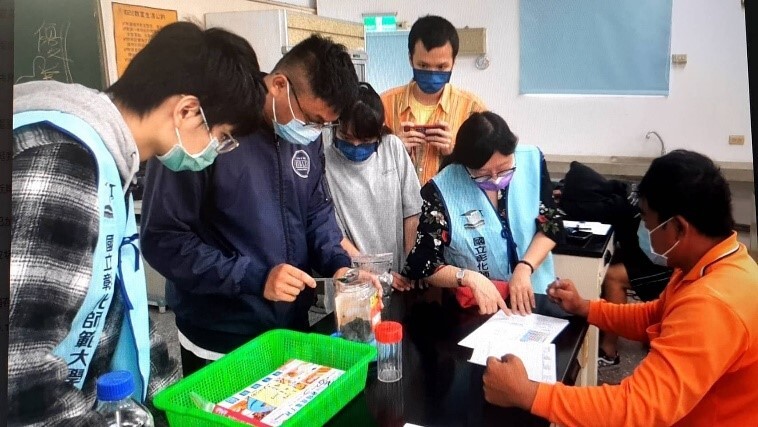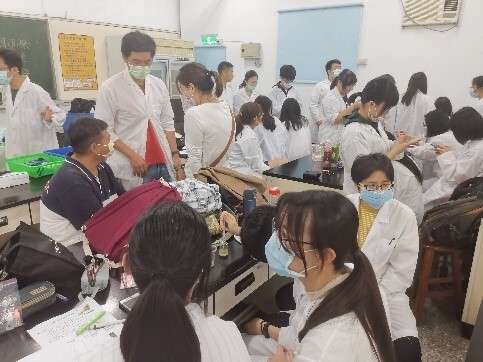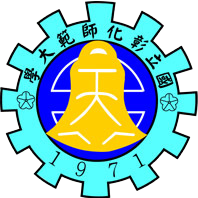SDG2.5.3 University access to local farmers and food producers
NCUE has long shared its professional facilities, technology, and service plans with local farmers and food producers, helping them with industrial upgrades and sustainable development by providing professional knowledge and technical support.
NCUE has long shared its professional facilities, technology, and service plans with local farmers and food producers, helping them with industrial upgrades and sustainable development by providing professional knowledge and technical support.

On March 16, 2022, a golden clam farmer brought the aquaculture pond's water and subsoil to the Department of Biology laboratory for testing
1. NCUE’s Department of Biology offers access to well-planned research rooms and supporting projects.
Local farmers and food producers hoping to improve their sustainable farming practices benefit from the NCUE Department of Biology’s research projects in such areas as the symbiosis between insects and microorganisms, algae engineering, social insects, animal ecology and evolutionary biology, yeast biodiversity and ecological evolution, bionics, molecular neuroendocrinology, molecular biology, plant genetic engineering, molecular health sciences, molecular medicine, free radical biology and biotechnology, bioinformatics, biology teacher training, environmental education, multimedia biology teaching and learning, and brain function and learning. The Department’s teaching and research results have contributed enormously to agricultural improvements.
2. NCUE’s Department of Geography promotes planning and research on regional development.
Proper regional planning promotes the region’s overall development, environmental conservation, and environmental assessments and improves farmers’ living environment and production.
3. NCUE implemented the project Deep Cultivation in Fangyuan and Joining Hands in Dacheng: Changhua Twin Cities’ Industrial and Environmental Sustainability 2021.
NCUE implemented the Ministry of Education’s budding project Deep Cultivation in Fangyuan and Joining Hands in Dacheng: Changhua Twin Cities’ Industrial and Environmental Sustainability 2021 by opening its water quality analysis laboratory, molecular health sciences laboratory, and molecular neuroendocrinology laboratory. This helped fish farmers in Changhua perform identification and quantitative detections on water quality, aquatic product safety and sanitation, white spot syndrome in shrimp, and fish diseases.
4. NCUE formed a water quality inspection and monitoring service team to implement a service plan.
In 2020, 18 teachers and students from NCUE formed a water quality inspection and monitoring service team that cooperated with the Fisheries Research Institute and Hungkuang University to provide technical support to the Changhua County Aquaculture Association. The team monitored and inspected the county’s 14 fish farms, four coastal inlets, and numerous groundwater wells twice monthly, providing real-time detection and monitoring analyses on water quality and bacteria levels to improve and enhance the quality and safety of coastal aquaculture and food systems with technical support.

2021.3.31 Aquaculture course
Annexes:
Visit this website for the latest research conducted by NCUE’s Department of Biology:
http://www.bio.ncue.edu.tw/writings/research.php
Visit the NCUE Department of Biology website here:
http://120.107.166.3/main.php
Visit the NCUE Department of Geography website here:
https://geo3w.ncue.edu.tw/intro_021.php
For more about Ministry of Education’s project Deep Cultivation in Fangyuan and Joining Hands in Dacheng: Changhua Twin Cities’ Industrial and Environmental Sustainability Project, visit this website:
https://www.facebook.com/NCUEUSR/

